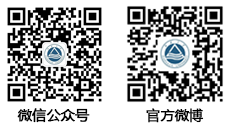The Experimental Center ofWuxi School of Medicine of Jiangnan Universitywas established in 2012, with a total area of 10,000 m2, more than 2,700 instruments and equipment, and a total asset of more than 90 million yuan. It undertakes experimental teaching courses for undergraduates majoring in Clinical Medicine, Nursing and Pharmaceutical Engineering, and offers more than 30 experimental courses and more than 200 experimental projects. There are more than 20,900 hours of experimental teaching per year.
The Basic Medical Experimental Teaching Center includes teaching laboratories of Human Morphology,Energetics, Biochemistry and Cell Biology, Pathogenic Microbiology and Immunology, and Preventive Medicine, and the Anatomy Laboratory was named “China Digital Anatomy Laboratory” by the Chinese Anatomical Society in 2017.
The Nursing Skills Training Center has excellent teaching and practice facilities, rigorous attitude towards research. It adheres to the teaching concept of combining curriculum-based experimental teaching with clinic-based innovative thinking and judgment ability, and that of combining in-class teaching experiment with extra-class open experiment.
The Body Science Museum has a collection of more than 800 physical specimens, and about 300 exhibition boards of Medical Humanities and Clinical Science. Adhering to the design concept of “clinical navigation, virtual and real integration, exhibition and teaching integration, sharing and interaction”, it has received more than 4,000 visits and guidance from leaders and experts of many universities and units at home and abroad.
The public service platform for scientific research includes the public molecular platform, precision instrument room, P2 laboratory, cell culture room, Key Laboratory for Foodborne Chronic Diseases, etc., equipped with nano-rise ultra-high performance liquid chromatography-high resolution mass spectrometry, laser confocal microscopy, sorting flow cytometry and other instruments.
The Laboratory Animal Center has SPF-rated small rodent barrier facilities, general environmental feeding facilities (dogs, pigs, rabbits) and large animal surgical operating rooms, with a total of more than 3200 mouse cages and more than 200 rat cages.
The Experimental Center has a total of 61 teaching staff, including 46 full-time teachers and 15 teaching assistants. In recent years, it has obtained one experimental teaching reform project, published 13 experimental textbooks, and guided students to win more than 10 awards in professional skills competitions.
The Experimental Center adheres to the principle of “moral education first and focusing on ability”. It takes students as the center, and aims at cultivating medical students’ practical and innovative ability and building an experimental teaching system of “thick foundation, high quality and strong skills”.





